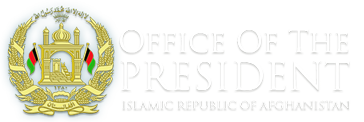
New Delhi: - Deputy Chief of Mission M. Ashraf Haidari participated in a panel discussion on “How do we ensure Afghanistan’s long-term political stability?” in a Young Thinkers’ Conference hosted by the British High Commissioner to India Sir James Bevan at the British High Commission on March 25, 2015. Mr. Haidari was joined on the panel by Mr. Jayant Prasad, India’s former Ambassador to Afghanistan, to discuss the question, followed by a Q&A session with young foreign policy scholars and professionals.
Mr. Haidari noted that the root causes of Afghanistan’s insecurity lay outside of the country. He said that even though the Afghan governments had been trying to end war and violence through a results-oriented political settlement, regional cooperation to facilitate an outcome that would not only consolidate Afghanistan’s democratic gains but also sustain them on the long run was still lacking.
“Afghanistan is a ‘bottom billion,’ landlocked country, which can hardly afford to be partial in our relations with others, including our neighbors, with all whom we’ve always tried to maintain good relations, knowing that our political stability and economic prosperity depend on those of theirs,” said Mr. Haidari. He noted that while Afghanistan’s development, much like that of India, would take time, it was insecurity that Afghans worried about the most.
“The new Afghanistan, consisting of my generation and a younger one, is different from the Afghanistan of the 1980s and 1990s when destructive regional and extra-regional forces were exploiting our many vulnerabilities, including ethnic diversity, toward their short-sighted, zero-sum designs,” Mr. Haidari remarked. He added that “the new Afghanistan wishes to globalize and march ahead with the rest of the world, especially with our neighbors, and would hardly allow any state or their non-state proxies to take Afghanistan hostage and isolate us once again.”
Mr. Haidari discussed the recent productive visit of President Ashraf Ghani and the Chief Executive Dr. Abdullah Abdullah to the United States, and appreciated the continued support of the American people for the long-term stabilization and development of Afghanistan. “We are thankful to the US, to the UK, and to the rest of allies for having made the ultimate sacrifice to secure the future of Afghanistan against the evil forces of radicalism and terrorism. But we must sustain our shared hard-earned gains to honor the thousands of international and Afghan forces, who have fallen for ensuring global peace and security through stabilization of Afghanistan,” he noted.
He concluded by saying that “ensuring Afghanistan’s long-term political stability” squarely rested on the continued international support for consolidating the gains the Afghan people have so far made, in partnership with the international community. “Faltering to help Afghanistan to stand on our own would have grave consequences for regional stability and international peace and security,” he warned.






